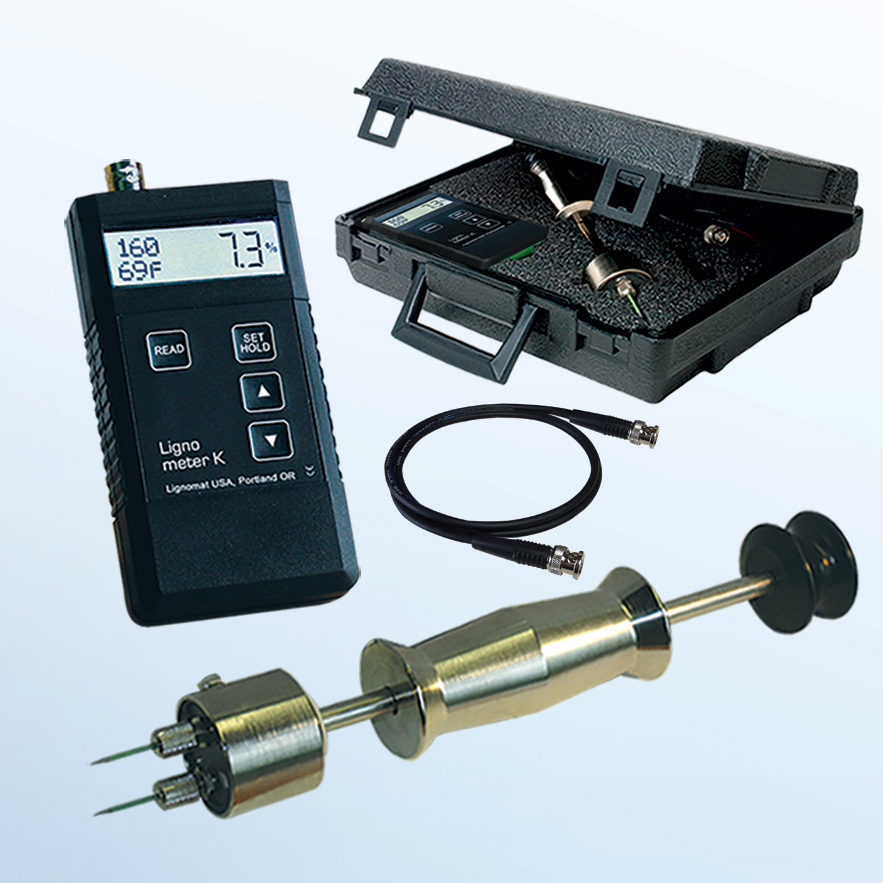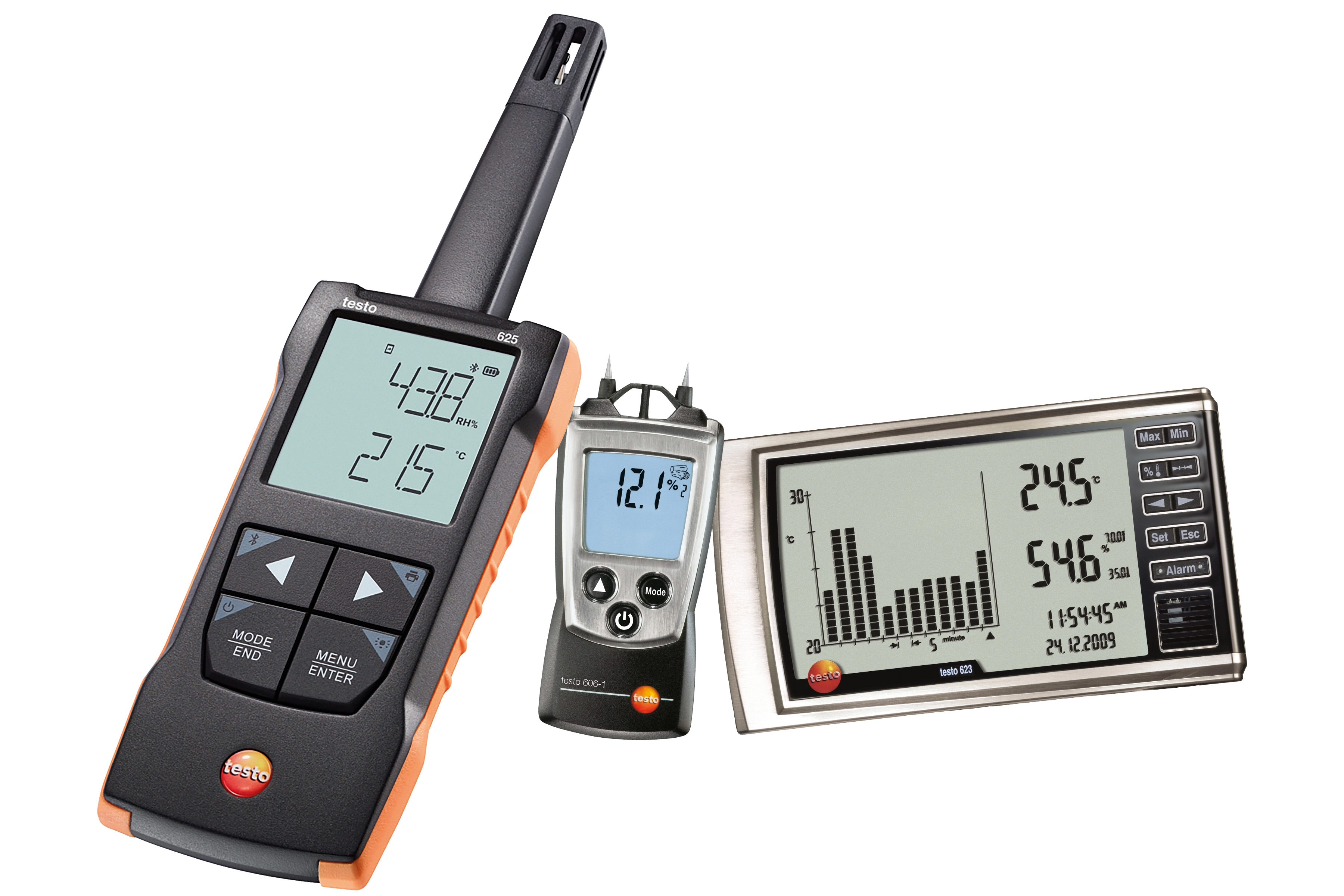Moisture Meter Purchasing Overview: What to Seek in High-Quality Instruments
Moisture Meter Purchasing Overview: What to Seek in High-Quality Instruments
Blog Article
Explore the Globe of Moisture Meters: Everything You Need to Know
In the world of moisture meters lies a world of precision and usefulness that usually goes unnoticed. These tools, while seemingly simple, hold a riches of information that can substantially affect various markets and applications. Comprehending just how moisture meters run, the different types offered, and their varied uses can clarify their importance in making sure top quality and performance. By exploring the details of dampness meters, one can discover a useful device that goes beyond plain dimension, offering insights that can make a considerable difference in many fields.
Just How Moisture Meters Work
Moisture meters run by gauging the electric conductivity or capacitance of materials to identify the moisture web content existing. These meters are vital tools throughout different industries, consisting of woodworking, farming, and building and construction. By utilizing various techniques such as pin-type or pinless modern technology, wetness meters offer exact readings that assist experts make educated choices.
Pin-type moisture meters function by inserting the sharp pins right into the material being examined. The electrical conductivity in between the pins is then gauged, with greater moisture levels leading to increased conductivity. Moisture Meter. On the various other hand, pinless moisture meters make use of electromagnetic signals to check a larger location without causing any damage to the product's surface area. These meters are ideal for swiftly assessing wetness degrees in big areas or completed items.
No matter the method utilized, dampness meters play an important duty in avoiding concerns such as mold and mildew development, structural damage, or product flaws created by excess dampness. Understanding exactly how these meters work is crucial for ensuring the quality and stability of materials in different applications.
Sorts Of Moisture Meters
Given the crucial role moisture meters play in different industries, it is vital to comprehend the different types available to professionals for accurately evaluating moisture levels - Moisture Meter. There are largely 2 main kinds of moisture meters: pin-type and pinless dampness meters

On the other hand, pinless moisture meters make use of electromagnetic sensor plates to check a bigger area of the material without causing any damage. This kind appropriates for promptly scanning large locations and is commonly utilized for floor covering, walls, and ceilings. Pinless meters are hassle-free for taking analyses on finished surface areas without leaving any visible marks.
Both kinds of moisture meters have their advantages and are picked based upon the particular needs of the job at hand. Comprehending the distinctions between these kinds is crucial for experts to make precise dampness analyses.
Applications Across Industries
With diverse performances, wetness meters locate widespread application across have a peek at this site different markets, assisting professionals in guaranteeing ideal problems for products and frameworks. In the farming field, moisture meters are important for figuring out the dampness web content in grains, seeds, and hay, making certain quality assurance and stopping mold growth. Building and construction experts count on moisture meters to analyze the wetness levels in structure products like drywall, concrete, and wood, which is essential for preserving structural integrity and avoiding problems like rot or mold. The flooring sector uses wetness meters to determine the moisture web content in subfloors prior to setting up various flooring treatments, avoiding costly damages as a result of excess wetness. In the food sector, wetness meters are utilized to check and manage moisture degrees in items such as grains, nuts, and dried out fruits to maintain freshness and high quality. Additionally, wetness meters play an important role in the restoration and damage control industry by assisting specialists identify and resolve water damage in structures quickly. Throughout these varied markets, dampness meters are important devices for guaranteeing the top quality, safety, and durability of numerous materials and items.
Tips for Utilizing Wetness Meters
Use the moisture meter's calibration setups to make sure accurate analyses when determining the moisture material in various products. Additionally, make sure the meter is set to the proper wetness array for the material you are measuring to acquire the most precise outcomes.
When using a pin-type dampness meter, place the pins to the appropriate deepness recommended for the material being examined. This guarantees that the dampness readings are extracted from the appropriate deepness within the material, giving a more precise depiction of its moisture web content. For pinless moisture meters, keep in mind to keep proper contact with the material's surface area to obtain trusted analyses.
On a regular basis inspect and replace the batteries in your dampness meter to protect against imprecise analyses as a result of reduced power. Shop the meter in a risk-free and completely dry location when not in use to prolong its lifespan and keep its precision. By adhering to these ideas, you can make the most of the performance of your dampness meter and acquire accurate moisture click over here web content dimensions across various products.
Upkeep and Calibration
To make sure the accuracy of wetness web content measurements, routine upkeep and calibration of the moisture meter are vital actions in its proper functioning. Calibration changes the moisture meter to make sure that it gives reliable and consistent results.
Calibration look at this site needs to be performed periodically, particularly if the wetness meter is made use of frequently or in important applications where specific dimensions are called for. Many moisture meters include calibration tools or can be adjusted by expert solutions. Moisture Meter. It is recommended to keep a log of calibration dates and results to track the performance of the moisture meter in time. By preserving and calibrating the wetness meter routinely, users can rely on the precision of the moisture web content dimensions gotten.
Verdict

Finally, dampness meters play a critical function in various markets by properly measuring the wetness material of materials. Recognizing just how these devices function, the different kinds available, and correct maintenance and calibration are important for getting dependable results. Whether in construction, production, or agriculture, making use of moisture meters aids guarantee quality control and performance in processes.

In conclusion, dampness meters play a crucial function in various sectors by accurately gauging the dampness web content of products.
Report this page